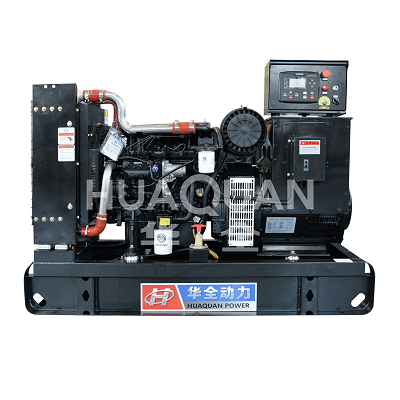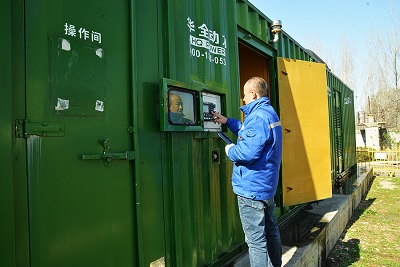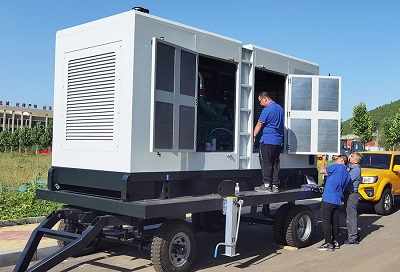Cylinder imbalance (often called "偏缸" or uneven cylinder performance) in diesel generators disrupts engine efficiency, increases fuel consumption, and accelerates wear. Left unresolved, it can lead to catastrophic engine failure. This guide explores the four primary causes of cylinder imbalance, their symptoms, and actionable fixes to restore your generator’s performance.
1. Uneven Fuel Injection
Symptoms:
Irregular engine noise (knocking or misfiring).
Black or white exhaust smoke.
Reduced power output.
Causes:
Clogged injectors: Deposits block fuel spray patterns, starving some cylinders.
Faulty fuel pump: Inconsistent pressure disrupts injection timing.
Worn injector nozzles: Uneven fuel distribution across cylinders.
Solutions:
Clean or replace clogged injectors.
Test fuel pump pressure and recalibrate.
Use high-quality, filtered diesel to prevent contamination.
2. Cylinder Wear or Damage
Symptoms:
Excessive oil consumption.
Low compression in one or more cylinders.
Blue exhaust smoke (burning oil).
Causes:
Poor lubrication: Inadequate oil changes cause piston ring or cylinder wall wear.
Overloading: Sustained high loads wear specific cylinders faster.
Cooling issues: Localized overheating warps cylinder liners.
Solutions:
Perform a compression test to identify weak cylinders.
Rebuild or replace damaged liners, pistons, or rings.
Maintain proper oil levels and coolant flow.
3. Valve Train Issues
Symptoms:
Backfiring or hissing sounds from the exhaust.
Misfires during startup.
Reduced engine efficiency.
Causes:
Incorrect valve clearance: Tight or loose valves disrupt air intake/exhaust timing.
Burnt or bent valves: Overheating or debris damages valve seats.
Broken valve springs: Fail to close valves properly, causing compression loss.
Solutions:
Adjust valve clearances to manufacturer specifications.
Replace damaged valves, springs, or lifters.
Inspect timing belts/chains for wear.
4. Air Intake Imbalance
Symptoms:
Erratic RPM fluctuations.
Uneven engine vibration.
Check engine light (airflow sensor errors).
Causes:
Clogged air filters: Restrict airflow to specific cylinders.
Leaking intake manifold gaskets: Allow unmetered air into cylinders.
Faulty MAF/MAP sensors: Send incorrect data to the ECU, skewing air-fuel ratios.
Solutions:
Replace air filters and inspect ducts for blockages.
Seal intake manifold leaks with new gaskets.
Clean or replace malfunctioning airflow sensors.
How to Diagnose Cylinder Imbalance
Use Diagnostic Tools:
Scan for error codes (e.g., misfire codes P0300–P0308).
Analyze live data for variations in cylinder pressure or fuel trim.
Perform Manual Tests:
Stethoscope check: Listen for irregular combustion sounds.
Infrared thermometer: Compare exhaust manifold temperatures across cylinders.
Preventive Measures
Regular Maintenance:
Change oil, filters, and coolant on schedule.
Inspect injectors and valves during servicing.
Load Management: Avoid prolonged operation above 80% capacity.
Monitor Sensors: Use IoT-enabled systems to track cylinder performance in real time.
FAQs About Diesel Generator Cylinder Imbalance
Q: Can cylinder imbalance cause permanent engine damage?
A: Yes. Prolonged imbalance wears crankshaft bearings, pistons, and turbochargers.
Q: How often should I test cylinder compression?
A: Annually or every 500 operating hours, whichever comes first.
Q: Can I fix a misfiring cylinder myself?
A: Simple fixes (e.g., replacing spark plugs) are DIY-friendly. Internal repairs require a mechanic.
Final Thoughts
Cylinder imbalance in diesel generators often stems from fuel, air, mechanical, or sensor-related issues. Addressing these four root causes early can prevent costly repairs and extend your generator’s lifespan. Bookmark this guide to troubleshoot confidently and maintain peak performance!
More information: http://www.huaquan168.com/


